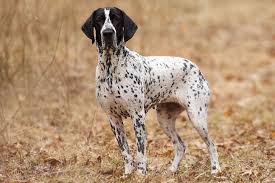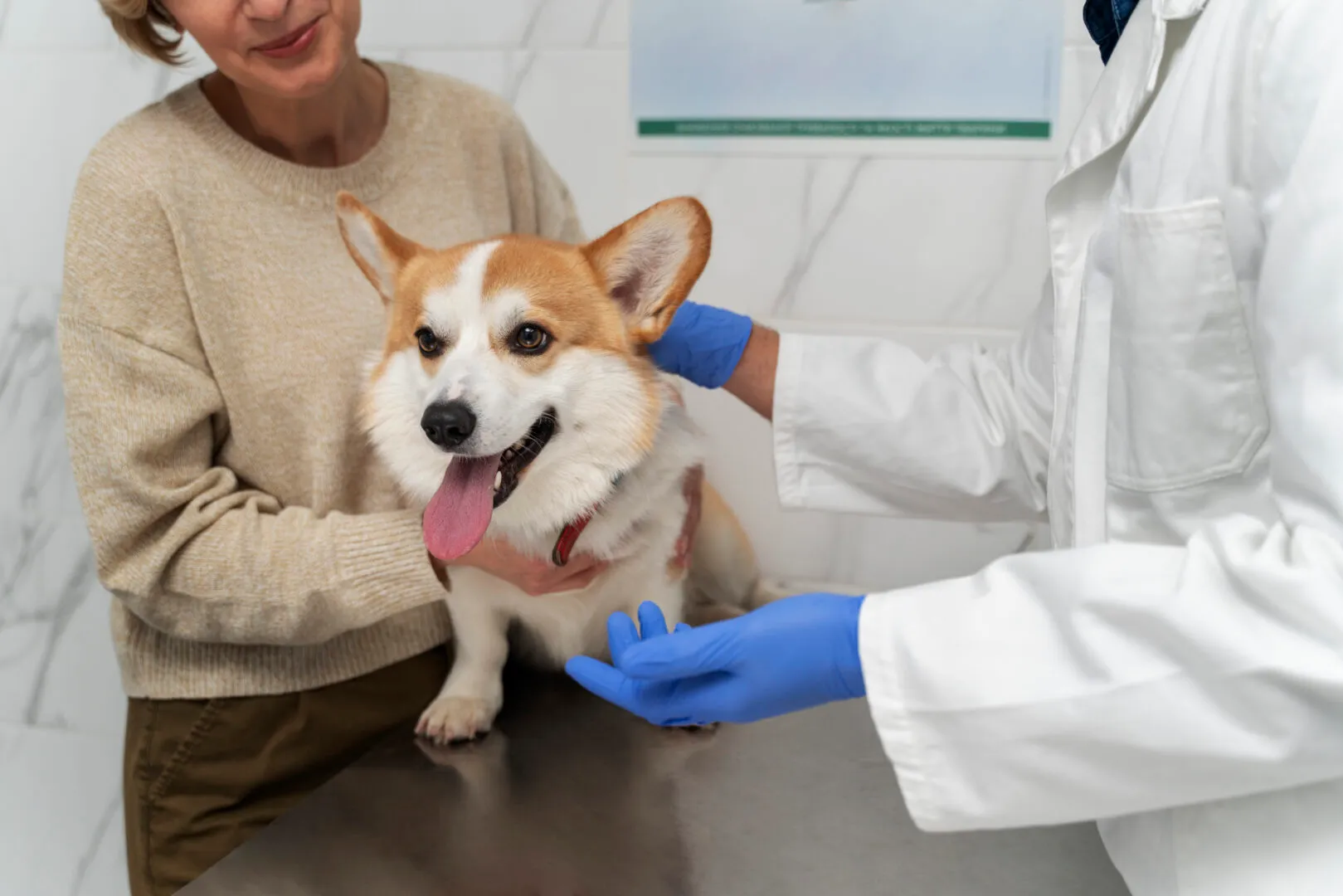
Braque d’Auvergne
Conditions of detention
Braque d’Auvergne dogs are adaptable and can live in various environments, but they thrive best in homes with access to large, open spaces where they can exercise. They are well-suited for rural or suburban settings where they can enjoy outdoor activities.
Useful Fact: These dogs have a strong need for physical activity and mental stimulation, making them ideal for active families who can provide regular exercise.
Nutrition and diet
A balanced diet tailored to the Braque d’Auvergne’s age, size, and activity level is essential. High-quality commercial dog food or a veterinarian-approved homemade diet can meet their nutritional needs.
Useful Fact: Due to their active nature, Braque d’Auvergnes may require more calories than less active breeds. It’s important to monitor their weight and adjust their food intake accordingly.
Health
Braque d’Auvergnes are generally healthy but can be prone to certain genetic conditions such as hip dysplasia and ear infections. Regular veterinary check-ups and screenings for these conditions are important.
Useful Fact: Regular ear cleaning is crucial for Braque d’Auvergnes due to their floppy ears, which can be prone to infections.
Grooming and care
The Braque d’Auvergne has a short, dense coat that requires minimal grooming. Regular brushing to remove loose hair and occasional baths are sufficient to keep their coat in good condition. Their nails should be trimmed regularly, and their ears checked for signs of infection.
Useful Fact: Despite their short coat, Braque d’Auvergnes are moderate shedders, and regular brushing can help control shedding.
Education and training
Braque d’Auvergnes are intelligent and eager to please, making them highly trainable. They respond best to positive reinforcement techniques and consistent, early training. Socialization from a young age is crucial.
Useful Fact: Braque d’Auvergnes excel in various canine sports and activities, such as obedience, agility, and field trials, due to their versatility and high energy levels.
Toys and entertainment
Braque d’Auvergnes enjoy a variety of toys, especially those that challenge their intelligence and keep them physically active. Fetch toys, puzzle toys, and interactive toys are great options.
Useful Fact: Regular playtime and interactive toys can help prevent boredom and destructive behaviors in Braque d’Auvergnes.
Safety
Safety considerations for Braque d’Auvergnes include secure fencing to prevent them from wandering and supervision during outdoor activities, especially in areas with wildlife.
Useful Fact: Due to their strong prey drive, Braque d’Auvergnes should always be kept on a leash when outside of a securely fenced area.
Accessories
Essential accessories for Braque d’Auvergnes include sturdy collars and leashes, harnesses for walks, and grooming tools like brushes and ear cleaning solutions.
Useful Fact: A harness can be especially useful for Braque d’Auvergnes, as it helps prevent strain on their necks during walks.
Socialization
Early and consistent socialization is important for Braque d’Auvergnes to ensure they develop into well-rounded adults. Exposure to different people, environments, and other animals helps them become more adaptable.
Useful Fact: Well-socialized Braque d’Auvergnes tend to be confident and friendly, making them great companions in various settings
Travel and Transportation
Braque d’Auvergnes can be good travel companions if properly trained and accustomed to travel from a young age. They should be secured in a vehicle using a seatbelt harness or a crate and have regular breaks during long journeys.
Useful Fact: Ensuring your Braque d’Auvergne is comfortable with travel can make vacations and trips to the vet much less stressful.
Behavior and psychology
Braque d’Auvergnes are known for their friendly, affectionate, and energetic nature. They form strong bonds with their families and enjoy being part of household activities. However, they can be protective and wary of strangers.
Useful Fact: Regular mental and physical stimulation helps prevent boredom and the development of unwanted behaviors in Braque d’Auvergnes.
Legal aspects
Owners should be aware of local regulations regarding dog ownership, including licensing, leash laws, and any breed-specific legislation that may apply.
Useful Fact: Responsible ownership includes ensuring that your Braque d’Auvergne is properly identified with tags and a microchip, which can be crucial in case they ever get lost.


